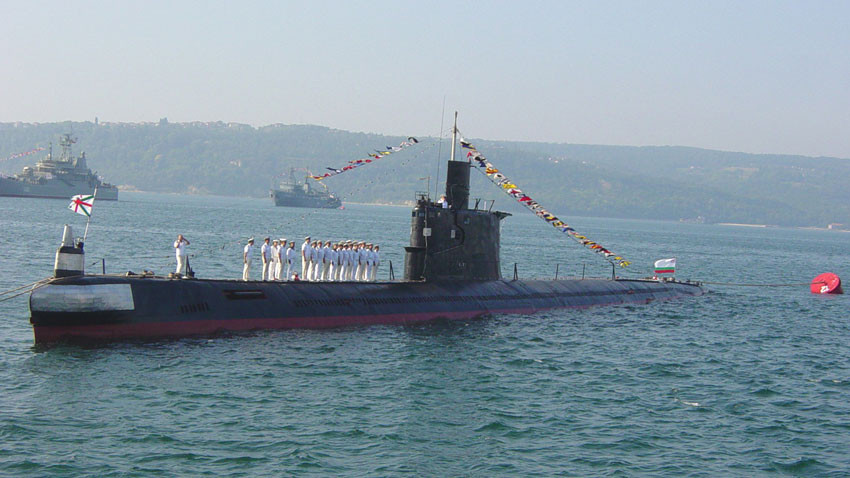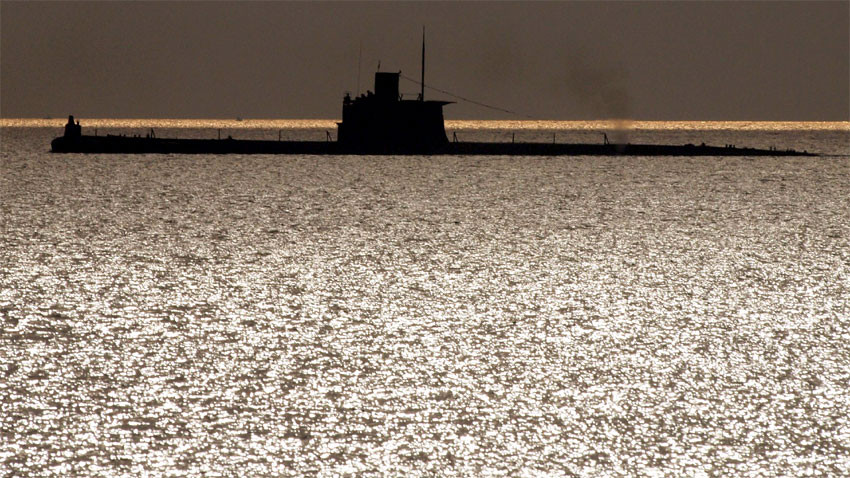Bulgaria’s last submarine Slava (Glory) may become a museum of this country’s submarine fleet. In the past seven years it has been waiting for its destiny at the Varna Port. Fortunately, Beloslav Glass foundation came up with the idea to turn the submarine into a tourist site. It is still unknown where the valuable exponent will be displayed, but the investor will have the right to use it for ten years. Slava submarine is very likely to be transported to Lake Beloslav which is not far from Bulgaria’s sea capital Varna.
 We are planning to pull the submarine to a dry dock and find a suitable place for it, so it can be seen from all vessels passing along Lake Beloslav, Dr Mariana Krasteva, Director of the Maritime Museum in Varna, told Radio Bulgaria. Meanwhile, visitors will have access to the submarine as well. We are planning to turn it into a tourist, cultural and historical site. Of course turning a given object into a museum requires a lot of efforts. The money invested in the project and the skills of the technical experts who will take part in the process are also very important. The preparation will be long for sure, because the submarine needs to go under serious repair and maintenance works. We also have to deal with corrosion and restore the missing elements, so people can see how the submarine looked like in its early years.
We are planning to pull the submarine to a dry dock and find a suitable place for it, so it can be seen from all vessels passing along Lake Beloslav, Dr Mariana Krasteva, Director of the Maritime Museum in Varna, told Radio Bulgaria. Meanwhile, visitors will have access to the submarine as well. We are planning to turn it into a tourist, cultural and historical site. Of course turning a given object into a museum requires a lot of efforts. The money invested in the project and the skills of the technical experts who will take part in the process are also very important. The preparation will be long for sure, because the submarine needs to go under serious repair and maintenance works. We also have to deal with corrosion and restore the missing elements, so people can see how the submarine looked like in its early years.
Slava submarine was manufactured in 1960 in the former USSR. It is 76 meters long, 7 meters wide and 6 meters high. It can dive up to 300 meters below water surface and travel at a maximum speed of 15.3 knots. The Slava submarine and the decommissioned Nadezhda (Hope) submarine were never caught on the radars of NATO ships during exercises.

Mariana Krasteva takes us back to the submarine’s days of glory:
Bulgaria bought this submarine twenty five years after it was manufactured. At that time our country had solid submarine experience. If we turn Slava submarine into a museum our visitors will have the opportunity to learn details about Bulgaria’s underwater navigation. At the end of the 1980’s Bulgaria had 4 submarines. Let us not forget that this was the time when huge attention was paid to the naval forces within the frameworks of the Warsaw Pact. A series of joint exercises were held with the USSR. After 1989 when the political situation in Bulgaria changed, the Bulgarian submarines started to hold exercises together with the Turkish naval forces. After the start of the new millennium the number of military exercises with submarines in Bulgaria decreased. The last navigation of Slava submarine was in December 2010. The date November 1, 2011 marked the end of Bulgaria’s underwater navigation when Slava submarine was officially taken out of the Bulgarian naval fleet.

Now Slava submarine is waiting to become a museum of Bulgaria’s underwater fleet. The initiators are supported by the Bulgarian Naval Forces, the Bulgarian Submariners Union and the National Maritime Museum in Varna which currently keeps the flag of Slava submarine.
English version: Kostadin Atanasov
Photos: BGNES and museummaritime-bg.comPipes from the end of the 17 th , the 18 th and the 19 th century and the tradition of growing tobacco in Bulgaria are presented in the newest exposition at the Museum of Archaeology in Burgas. “Pipes like this are to be found often on the..
In Bulgaria, when we talk about a person with bad luck, we often say: "Ah, what a Marko Totev!" But who exactly was Marko Totev, and how did his name become a byword for a person with ill fortune and a bad luck? "He was a Bulgarian public figure..
30 March marks the end of the most blessed time of the year, as Muslims call the month of Ramadan. This year it started on 1 March, and the most important obligation Muslims have during this 30-day period is to refrain from food, drink and temptation..

+359 2 9336 661
